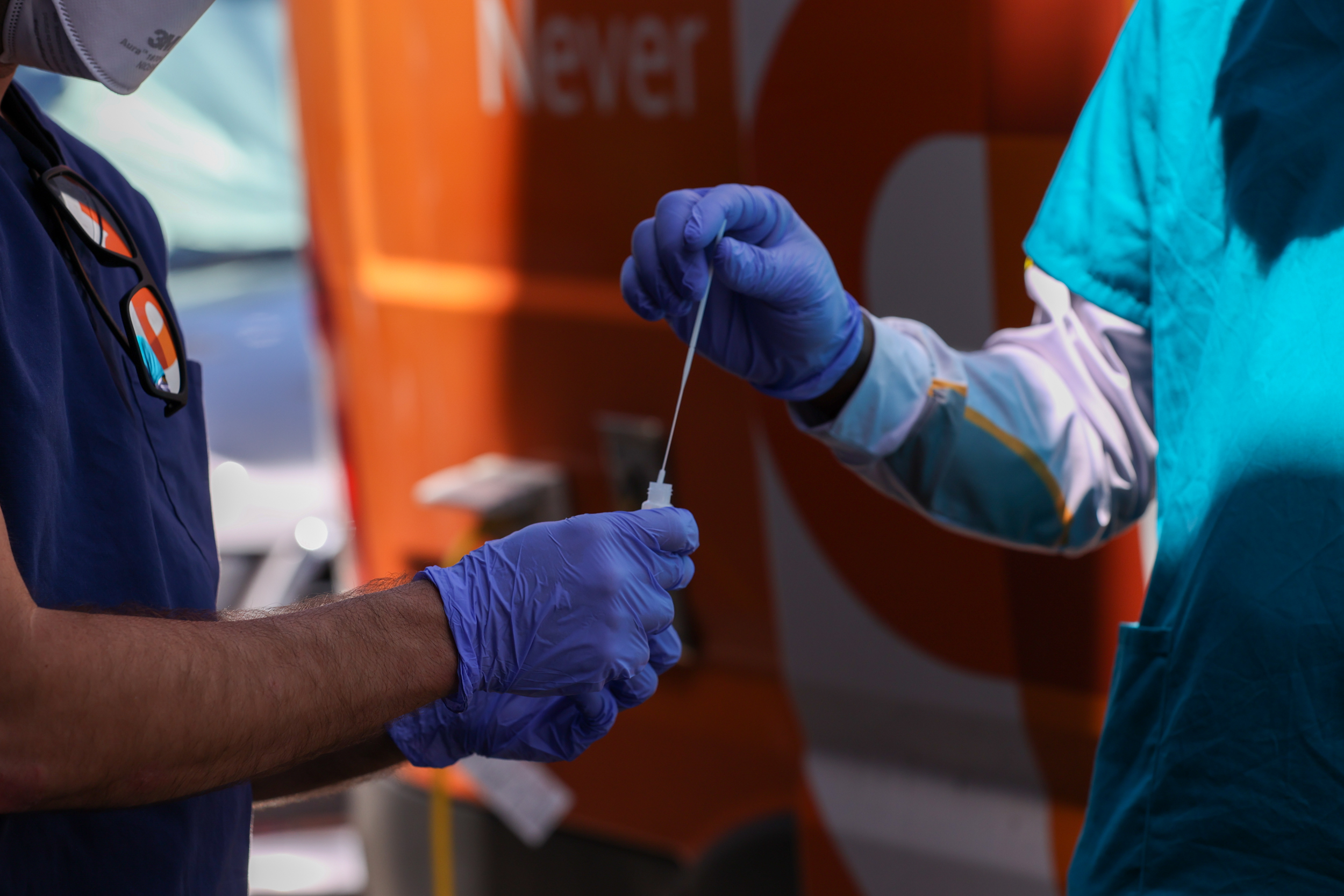The San Francisco Department of Public Health is permanently closing the Alemany Covid-19 Testing Site at 100 Alemany Blvd. on Jan. 31 in line with what the agency says is declining demand for the site’s testing services.
The department says that 29% of people served by the testing site report having private insurance, and visits dropped over the course of last year. The health department said it encourages those with insurance to seek reimbursement for at-home tests and advised all residents to order free tests through the federal government through this site.
Additionally, the city plans to wind down some of its mobile testing facilities, which are operated in partnership with the health service provider Optum, including:
- The City Central Testing Van at 101 Grove St. (last day open on Jan. 30)
- The Potrero Hill Testing Van at 107 Dakota St. (last day open on Jan. 31)
- The BHS Central Admin Testing Van at 1390 Howard St. (last day open on Feb. 1)
- The City College Evens Center Testing Van at 1400 Evans Ave. (last day open on Feb. 2)
- The SFPDH Admin Testing Van at 25 Van Ness Ave. (last day open on Feb. 3)
The city still operates several open testing sites, including at Kapwa Gardens in SoMa, the Bayview Opera House and Ella Hill Hutch Community Center, but hours and locations are limited when compared with the peak of the pandemic. A full list of testing locations in the city can be found here.
After an uptick late last year, Covid case counts in the city have continued to decline through the second half of December and January. And as the pandemic drags into its third year, governments have been pulling back on subsidizing Covid testing and treatments.
The Biden Administration renewed its Covid public health emergency declaration for the 11th time this month, but Politico reported that officials are aiming to end the emergency designation as early as the spring.
California is expected to end its own end its Covid pandemic state of emergency on Feb. 28, 2023, according to an announcement by Gov. Gavin Newsom.
Moderna and Pfizer, the drugmakers behind the two leading mRNA vaccines, are preparing to shift their activity to the commercial markets and have indicated plans to raise the price of their treatments to market value.
In an analysis, the Kaiser Family Foundation found that while most people will still have free access through insurance coverage, uninsured and underinsured may face new cost barriers.
“It makes me worried,” said Dr. Peter Chin-Hong, an infectious disease expert at UCSF. “Any barriers to treatment creates a bigger difference between the haves and the have-nots.”
